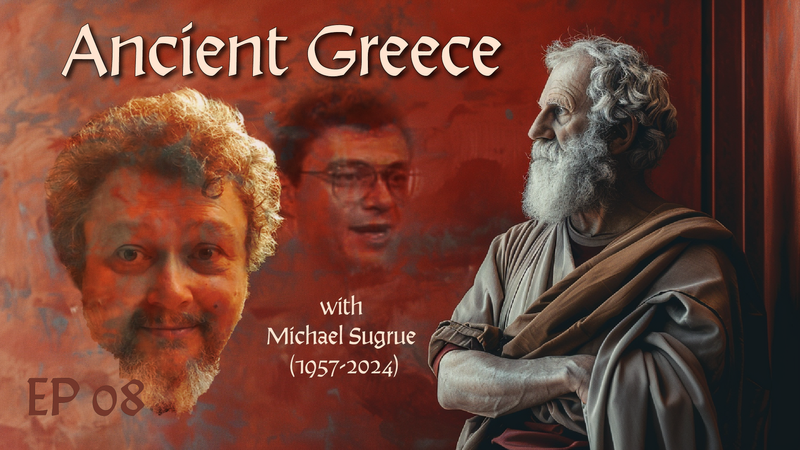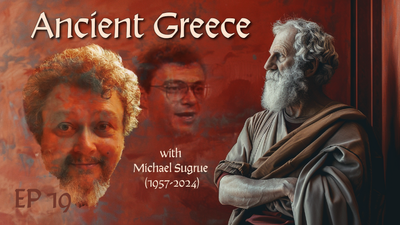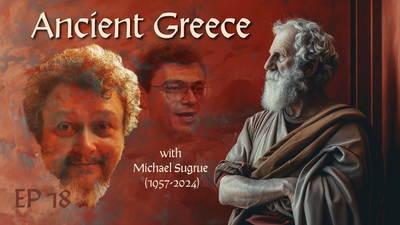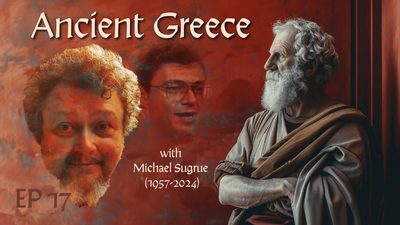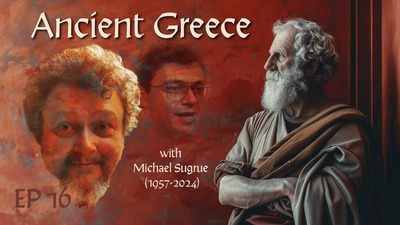Divine inspiration has fascinated thinkers for millennia. Plato's dialogues explore this phenomenon not just as a mystical occurrence but as an essential part of human creativity and understanding. Plato challenges us to consider: Are poets and artists simply gifted, or are they chosen by the divine? By delving into Plato’s take on artistic inspiration, we find a framework where reason and madness coexist, enriching our lives and broadening our perceptions of reality.
This duality of inspiration reflects Plato’s belief that knowledge alone is not enough; something greater must drive the soul towards creation. Think of moments when you felt a surge of creativity or insight that seemed to come from nowhere—when the pen moved almost on its own or when words flowed effortlessly. Such experiences echo Plato’s description of divine madness, where the barriers between the human and the divine blur, revealing new realms of thought and imagination.
By integrating Plato’s wisdom into our modern lives, we invite readers to imagine the ancient world where oracles spoke, artists painted under divine influence, and poets claimed inspiration from the muses. This interplay between reason and the divine can inspire us today to create without inhibition and embrace moments of serendipity.
From the Archives of Ancient Greece: Featuring Dr. Michael Sugrue
Dr. Michael Sugrue offers a captivating interpretation of divine madness in Plato’s Ion. According to Sugrue, Plato doesn’t dismiss poetry or art as mere irrationality; instead, he elevates it by framing creativity as a connection to something greater than ourselves. Sugrue likens this to the ancient concept of being “touched by the gods,” where poets and artists receive their inspiration from a higher power.
Consider Plato’s conversation in Ion, where Socrates challenges the rhapsode Ion to explain how he can recite epic poetry so perfectly without truly understanding the content. Ion’s response—that he is inspired by the gods—leads Socrates to conclude that true poets and artists create not from reasoned knowledge, but through a form of divine possession. Sugrue beautifully illustrates this point by drawing parallels with modern artistic geniuses who often describe their creativity as an otherworldly force guiding their work.
Dr. Sugrue’s exploration provides a nuanced view of how ancient Greeks revered creativity. It wasn’t just skill or practice, but a gift bestowed by the gods—an idea that resonates even in today’s discussions of creativity and genius. Readers are encouraged to reflect on their own experiences with creative inspiration and consider joining planksip.org, where these ancient insights are re-imagined and given new life.
Insights from the Dialogues: Quoting Plato
Plato’s Ion (533e) presents Socrates’ provocative idea that poets are “divinely inspired.” When Socrates questions Ion’s expertise, the dialogue explores how artists produce their best work not through technical mastery alone but by becoming conduits for a higher power. Plato uses the metaphor of a magnetic stone to illustrate this idea, suggesting that just as a stone can magnetize an entire chain of iron rings, the gods can inspire a poet, who in turn inspires an audience.
This analogy extends beyond poetry to every form of artistic expression. Picture a dancer moving to music in perfect harmony or a writer crafting a story with profound emotional resonance. Such artists often speak of losing themselves in their work, becoming a vessel for something larger than themselves. By aligning with Plato’s insights, we can understand these experiences not just as isolated moments but as connections to a deeper, universal well of creativity.
For those interested in exploring these themes further, planksip.org offers a space to engage with this legacy. As we reinterpret ancient dialogues for modern times, we invite readers to ponder: What role does divine inspiration play in our creative processes today?
Chance and Fate: Exploring Ancient Games
In ancient Greece, divination games such as knucklebones (astragali) and the casting of lots were not just casual pastimes; they were viewed as rituals to glimpse the will of the gods. For the Greeks, these games held symbolic significance, reflecting their belief that chance and fate were intertwined with the divine. Much like poets channeling inspiration, players of these games sought to interpret divine messages through their rolls and casts.
Take, for example, the popular game of astragali, which used small bones resembling dice. These bones were tossed to predict outcomes or seek guidance from higher powers. The throws were believed to reveal divine intentions, similar to how an artist might feel their creativity guided by an unseen hand. This connection between fate and creativity suggests that even in randomness, the Greeks saw a pattern—a narrative that connected human actions to a greater cosmic order.
Explore the Mystical World of Astraguli: Ancient Games of Chance with Cultural Significance.
Today, we can see echoes of this belief in our fascination with luck and fortune. From flipping a coin to resolve a dilemma to attributing success to fate, these practices remind us of our enduring desire to find meaning in the unknown. Readers are encouraged to visit planksip.org to explore how these ancient symbols of chance inform our understanding of fate and inspiration.
Virtues Revisited: Practical Lessons for Today
This week, we revisit the cardinal virtue of Prudence in light of Plato’s concept of divine inspiration. Prudence, the wisdom to make careful choices, plays a vital role in tempering moments of inspired creativity with discernment. As Plato shows in Ion, being swept away by inspiration is a double-edged sword—while it may lead to artistic brilliance, it can also blind us to the consequences of our actions.
In our modern world, prudence is the anchor that grounds moments of inspiration in reason. Imagine an entrepreneur launching a new venture driven by a brilliant idea. While the initial spark is vital, it’s the prudent planning and foresight that ultimately ensure success. Similarly, in artistic endeavors, creativity must be balanced with thoughtful execution to bring an inspired vision to life.
For readers interested in exploring how ancient virtues apply today, planksip.org offers a platform to engage in discussions around prudence, inspiration, and the interplay between divine madness and reason.
Engage with Us: Reader’s Corner
Have you ever experienced a moment where creativity seemed to flow effortlessly, as if guided by an invisible force? What role do you believe intuition and inspiration play in your creative process? We invite you to share your reflections and stories with us on planksip.org. Selected responses will be featured in upcoming newsletters, creating a community dialogue that bridges ancient wisdom with modern experiences.
By participating, you join a conversation that spans millennia, re-imagining the personification of Plato as an ideal worth striving for—a guide for the creative and the curious.
Closing Reflection: Socrates’ Enduring Legacy
As we reflect on this week’s theme, we’re reminded that Plato’s insights on divine inspiration challenge us to embrace creativity as more than just a product of rational thought. Socrates’ exploration of divine madness in Ion invites us to consider the mysterious forces at play in our moments of brilliance. It’s a call to accept the unpredictability of inspiration and trust in the possibility of something greater guiding our creative pursuits.
For those seeking to deepen their connection with ancient wisdom, planksip.org offers a space to explore these enduring questions in a vibrant community dedicated to re-imagining the teachings of Plato for today’s world. Join us, and discover the divine spark within your own creative journey.

Plato Re-Imagined
This course offers 32 comprehensive lectures exploring most of Plato's dialogues. These lectures guide students toward a consilient understanding of the divine—a concept that harmonizes knowledge across disciplines and resonates with secular and religious leaders. As a bonus, Lecture #33 focuses on consilience, demonstrating how different fields of knowledge can converge to form a unified understanding.

